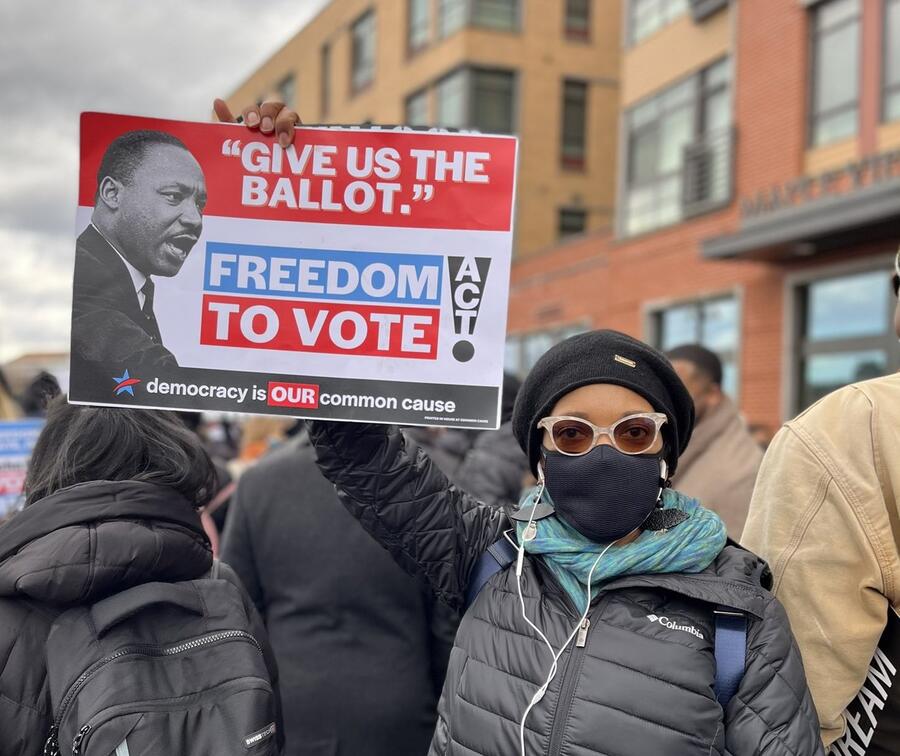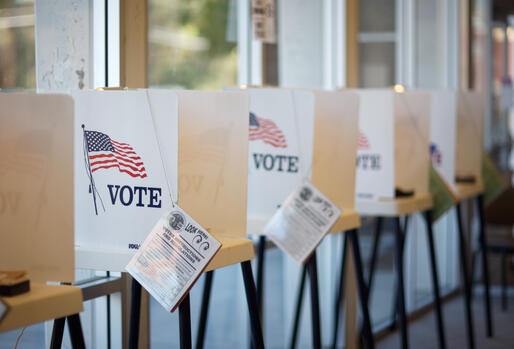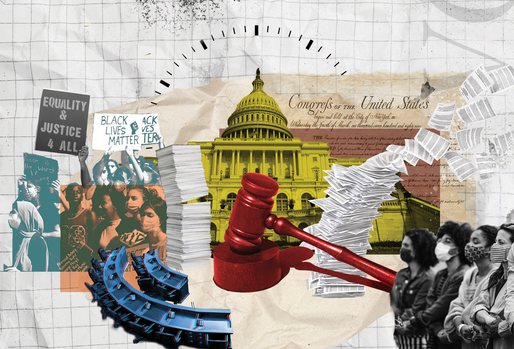
We Know the Assignment: Pass Voting Rights Now
This urgent, defining moment in America calls for The Freedom to Vote: John R. Lewis Act.

On Monday, in honor of MLK Day, I joined hundreds of DC residents, activists, and civil rights leaders to commemorate Dr. King’s birthday during the annual Peace Walk across the Frederick Douglass Bridge. While the walk is powerful every year, this year, with voting rights hanging in the balance, was particularly special. I was honored to join members of the King Family, who led the march, in calling on the Senate to pass the Freedom to Vote: John R. Lewis Act. From the call-and-response “What do we want? Voting Rights! When do we want them? Now!” to the walk narrator sharing the history of democratic struggle within the United States, the atmosphere was electric. Despite the cold weather, people remained fired up and ready to go. At a moment when our democracy is at stake, we marched fueled by the belief that people power must prevail amid political nonfeasance and obstruction.
Following the march, I joined a chorus of powerful voices at the Deliver for Voting Rights press conference hosted by Martin Luther King III and nearly 150 progressive organizations. One speaker after another articulated the dire urgency of this moment for our democracy. We united with one single message: There could be no celebration without legislation.
The Freedom to Vote: John R. Lewis Act establishes national standards on automatic and same-day voter registration, expansion of voting by mail, baselines for the number of early voting days, safeguards against partisan gerrymandering, and so much more.
The solution for this urgent, defining moment in America is The Freedom to Vote: John R. Lewis Act—named after a man who spent 3 decades of his remarkable life representing my fellow Georgians in the House. It is the last great hope for this democracy. This legislation establishes national standards on automatic and same-day voter registration, expansion of voting by mail, baselines for the number of early voting days, safeguards against partisan gerrymandering, and so much more. These ideas are sound and will strengthen our democracy even as state-level anti-voter legislation seeks to restrict access to it.
NOW is the time to take action on voting rights. Call your senators (202-224-3121) and demand a robust, extended debate on the #JohnLewisFreedomAct.
I stood in solidarity to underscore that we could not celebrate Dr. King’s legacy as states across the country—unchecked, unaccountable, and unabashed—enact voter suppression laws. GOP-coordinated messages intended to call into question election integrity and security are based on the Big Lie—the unfounded notion that Donald Trump won the 2020 presidential election. We reject these falsehoods wholeheartedly. They are rooted in power-hungry partisanship and manifest in the effort to thwart the will of the people via the filibuster, an arcane, anti-democratic rule inspired by Jim Crow-era obstruction to civil rights for Black and brown Americans. Today, we must not relent. Lawmakers in Washington must see and hear the power of the people—the demos.
Historically, when Black and brown communities have exerted their political power, white backlash hasn’t been far behind. This was the case during the post-Reconstruction era, during the Jim Crow era, and now following the heightened power and voice Black and brown communities have demonstrated after decades of police brutality—including George Floyd’s murder—and after the 2020 election.
Make no mistake: This is a coordinated, systematic, state-by-state attack on the fundamental right to vote, one that warrants immediate federal action. As my shero Shirley Chisholm said, “You don’t make progress standing on the sidelines whimpering and complaining. You make progress by implementing ideas.”
This is the civil rights moment for our generation. And we must not lose heart. Regardless of political entrenchment, posturing, and media headlines, the people will have the final say.
Call your senators (202-224-3121) and demand they get on the floor and share their position on the bill, and that they explain why they do or do not support the fundamental right to vote. And then, demand that they pass this bill by any means necessary.




